Why you Should Read More During Corona Isolation
Published on 4/21/2020By now, most of us have been undergoing social isolation for several weeks now, and are running out of Netflix shows to binge (Crazy Ex-Girlfriend for sure!) or the will to bake another banana bread. You’d think that we were starting to ‘adapt’ or ‘cope’, but this isn’t a simple change of lifestyle, a new habit to adopt, it’s the alteration of everything we knew. Our routines have been thrown out, and we have to somehow keeping going and keep our head up. Easier said than done, of course.
Another difficulty it can pose is the feeling that we need to use this time, to come out of self-isolation with rock hard abs, a finished Great American novel, the ability to code, and having finished our entire book bucket list. I know I’m guilty of this feeling. I’ve been ‘gifted’ so much more time, and where is it going? It’s going to keeping me afloat, helping my body and mind deal with the trauma and stress. We mustn’t forget about our mental health during Corona.
But, that doesn’t mean that we have to spend our time bingeing shows, staring into space and constantly refreshing Instagram - even though sometimes social media can help your mental health! It’s about finding how to look after yourself, how to fulfill your time whilst also taking things easy. And to me, that would include reading more.
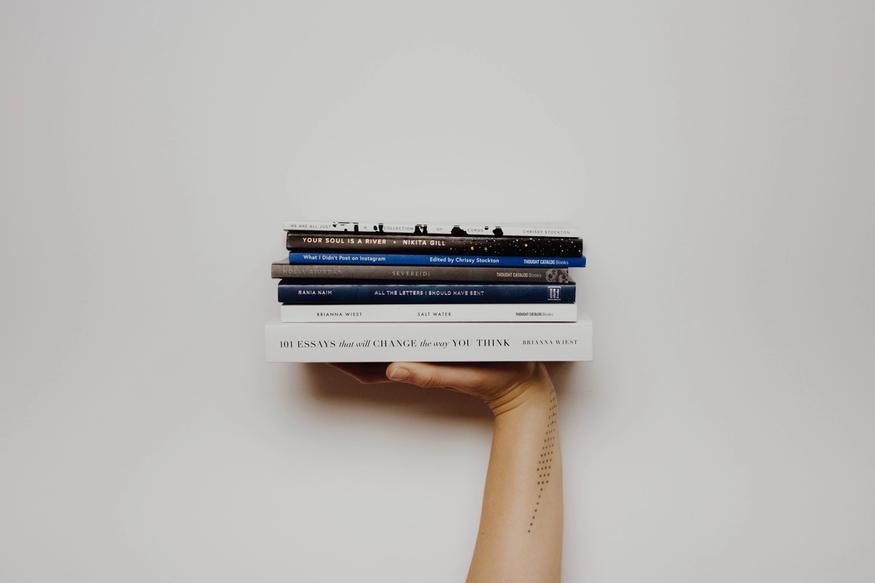
Here are my 9 reasons why you should read more during isolation:
1. Learning
It’s an obvious one, but always worth addressing in terms of reasons for reading more. You learn from books, that’s why we use them in schools, universities are more. They are brimming with knowledge. And reading this knowledge does more than pass it onto you, it helps to improve your skills in those areas. Read a book about management skills? Head back to the office ready to put them into play. Read a book about handling your mental health? Use the practices learned and improve your everyday.
But here’s the part you might not realise. It does not have to be non-fiction that you read. Indeed, reading fiction books also helps you to learn! You pick up skills for improving your own writing and ideas in daily life. Read a lot of well-written novels, and you’ll head back into the world creating incredible work emails, texts to friends and more.
And these skills aren’t just for the written word, for reading makes you a better conversationalist as well. It helps you know how to say what you want to say, and get your message across best. Gotta love that new vocab!
2. Escapism
For some reason, this is one of my favourite aspects of reading more. In a time when we’re pretty much confined to our home, let alone country, we could all do with a bit of a mental escape. We won’t be travelling for a bit, so why not travel within the pages of a novel? Accompany Cheryl Stayed on the Pacific Crest Trail, accompany Elizabeth Gilbert to slurp on some spaghetti in Italy, or accompany me on my Melbourne City Trip or weekend in Sydney!
But it doesn’t even have to be about discovering a new geographical destination, escapism is literally about escaping. Escaping your daily life. This is a stressful time, so give yourself a break by leaving current events and heading into someone else’s life. Fiction is incredible for this. And I’m not saying it has to be a candyfloss, happy days romance (unless you prefer that!). Read something dark and twisted if you like, read a fantasy with heads being chopped off and a dragon on the loose. You’re still escaping the now, you’re giving your mind a break by letting it be someone else’s problem for a while.
As a writer, we learn how exhausting it can be to be making all those decisions in our books. Writing fiction is tiring as we decide what they’re doing, saying, thinking, feeling all the time. But this makes it great for a reader, as now all the decisions are made for you! So sit back with a cup of tea and enjoy the ride.
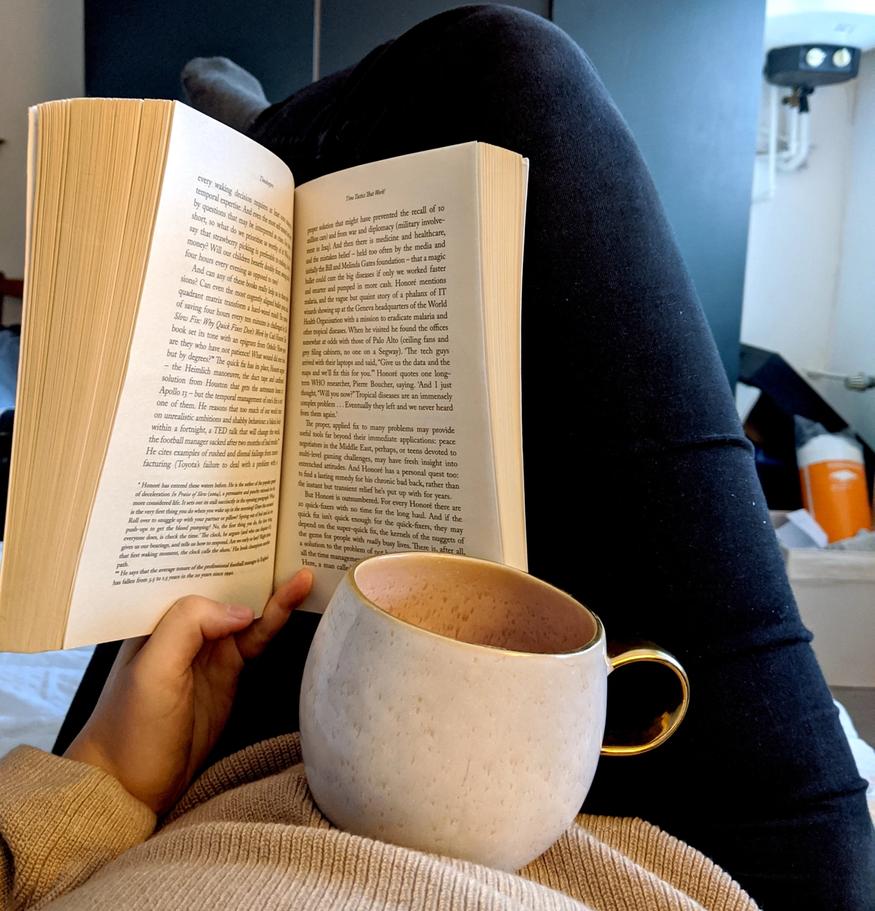
3. Time
We’ve all got quite a bit of time on our hands right now. Which is daunting for sure. But it is also worth remembering how often we yearned for this time. Almost everyone I know has mentioned books to me that they wished they had the time to read. Well, here it is, so may as well use it. We probably will never have this much time again, get a few books off your list already!
And it doesn’t have to be the classics! Maybe there’s a romance series or fantasy saga you’ve always wanted to complete. Maybe it’s the Harry Potter books - if you haven’t read those, you simply must as soon as possible, that’s an order.
4. Brain Juice
It sounds like I’m repeating the first point, but I’m not! I’m talking about that specific, scientific brain juice you get from a juicy novel. I’ll keep it brief, as you should be reading books and not my drivel.
Reading stimulates brain functioning, it increases blood flow and improves connectivity in the brain. It’s been shown to improve memory as well! You might have been experiencing struggles with memory and focus lately, a psychological response to stress and trauma. Well, why not slowly build that skill back with the help of a good book?
5. De-Stress
Everyone is different when it comes to de-stressing. For example, I really enjoy cooking. I love putting on an episode of Grey's Anatomy or a playlist, and then chopping away at my own pace. I find it to be relaxing, and the perfect way to unwind no matter how my day went. Meanwhile, my boyfriend finds cooking for us so stressful. He gets fixated on following the recipe step by step, feels overwhelmed by the steaming pan or bubbling pot, and just does not have a good time.
But I have yet to find someone - comment below if i’m wrong- who finds reading stressful. There are people who find it harder, or less enjoyable, but never stressful. Because reading is at your pace, it’s your choice. A lot is left to your imagination, your control. And unlike watching a show or film, you can’t multitask and lose the benefits.
So take an hour, get a snuggly blanket, and curl up with a book. Phone away, maybe a candle lit nearby. Make a sanctuary out of the home you have to isolate in, and de-stress with a book.
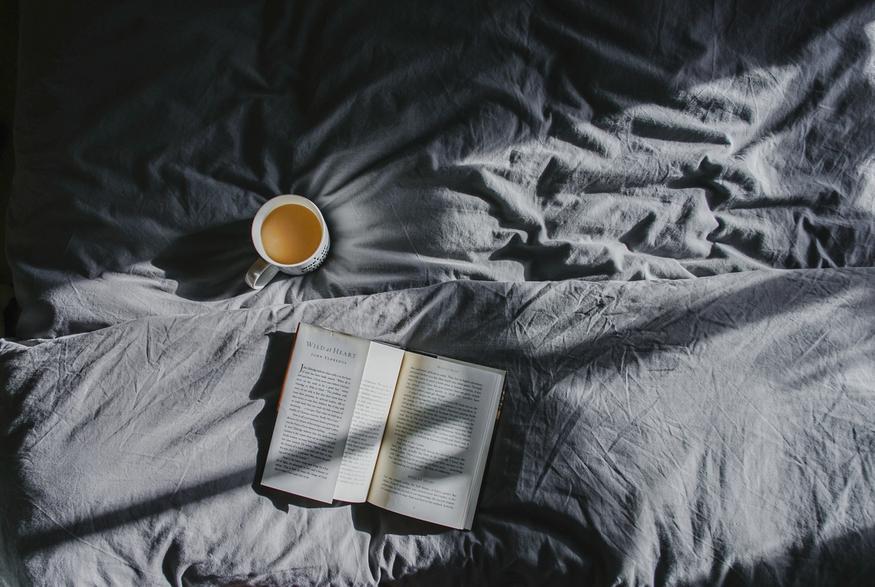
6. Creativity
People who know me or have read more of my posts will know that I am big on creativity. I spend every day writing, whatever the format, and I love surrounding myself with fellow creatives, including dancers, singers, songwriters and more. Creativity doesn’t have to be your career to be a part of you, but that’s a song for another day!
I could write an entire blog on the benefits of creativity, but I’m mindful of the time we have together today. So for a little break down, creative activities allow you to de-stress and keep calmer. It gives you the space to breathe and focus on smaller steps to your day.
Especially now, creativity allows you to express yourself! And even if you only feel comfortable doing that through reading, then that’s perfect too. Read books and soak in the creativity they gift you. Step away from academics, work, the news, and read something that allows you to relax and enjoy.
If you want to further your creativity and really soak in it, keep track of the books you read and write a little description/review. Discuss them with friends… but more on that soon!
7. Loneliness
This one is a bit of a stretch for many, but one I believe wholeheartedly in! Reducing loneliness through reading works in two ways.
Firstly, you’re never alone when you’re surrounded by characters. It sounds lame, but many bookworms will agree. When reading a book, and especially during a series, you grow to care about the characters, to love them and hate them as if you really know them, as if they’re people sitting beside you. During a time when you can see fewer people than usual, this can really help to reduce feelings of loneliness.
For myself, I know I’ve been feeling really lonely the last week, despite isolating with my partner and calling friends frequently. Even while working from home, I have Google Hangout meetings at least twice a day. But I still feel so alone, which I didn’t expect given that I’m introverted and usually feel socially overwhelmed easily. But I do. And reading a book, a fiction novel for me, can really help. It lets me connect with others, and feel close to people. I miss the gossip of the office, the drama shared over drinks with the girls, and more. And now I get some of that social excitement through a novel, and that will have to do!
Secondly, reading can reduce isolation through providing a bridge to friends. Encourage your friends to read the same books, and keep each other on track with it. This will allow you to stay motivated reading, and to discuss the books. Sometimes it can be hard to have things to talk about given that we’re all home, and most conversations slip into COVID - 19. But that just keeps us reminded of current events, and doesn’t let us speak freely and with joy. So discuss the books you’re reading, argue over a character, speculate over the ending. I even started a virtual book club during isolation with friends, where we read 3 chapters weekly and then discuss them via Zoom. It’s so much fun, and the highlight of my Sunday! A glass of wine, and a good chat with the girls, all because of the same book.
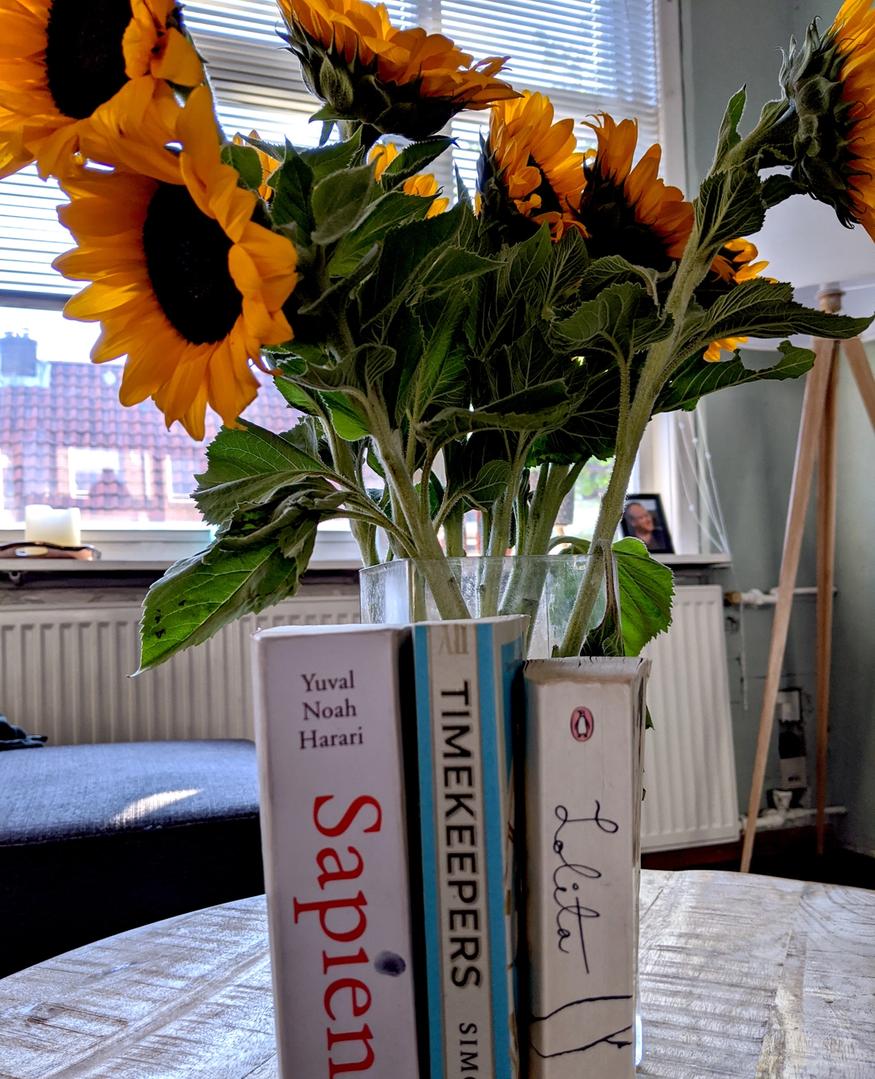
8. Routine
Alongside the lack of social interaction, I think this is one of the aspects of isolation affecting people the most. Losing your routine can be a huge hit to morale, it’s how you base your productivity, your sense of success after a day. Whether you made it to the gym, stayed at the office for a certain number of hours, or went to Friday night drinks with your friends. We manage to equate self discipline to a routine, and then suddenly it’s gone. It’s hard to wake up early and exercise if it isn’t in the manner you built that habit. For people who aren’t working, it’s made so much harder by the new time presented. Studying from home is also a lot harder than studying in a classroom or library.
Reading could potentially help to construct a new routine, and aid you to build it up slowly. Choose a time of day when you want to read, and go from there.
Personally, I always read for 20 minutes before I go to sleep, every single day (I’ll be super honest here, the only exception is if I’m quite tipsy, and then I give it a miss!). So I know what time to go upstairs and get ready for bed, I then set my alarm and put my phone aside for the night, and then read for twenty minutes. This helps me to always be reading something and to plow through more books, to find time in a busy day, and to be without screens for the final moments before sleep. I sleep way better as a result, falling asleep quicker and staying in a deeper sleep. I also feel more rested, and get to bed on time as I’m not watching “one more episode” or getting lost on Instagram.
Constructing a reading schedule like this one could allow you to read more and go to bed at a better time - a struggle in COVID 19 days.
Or you could use reading to build a schedule by setting an alarm, and starting your day by reading for 15 minutes. This allows you to feel better about waking up, as you don’t have to jump out of bed, and ensures you don’t spend more time mindlessly on your phone. Then you’ve already achieved something and can continue your day. Read with your morning coffee, read after lunch to avoid an energy dip, read once you finish work. Just read sometime, a set time, and keep it up.
This aids your self-discipline and focus, and then you can apply this to other aspects of your day and habits you want to improve. It’s been shown that it is easier to attach a new habit to an existing one, to ensure success. This is called Habit Stacking, and works as following.
So don’t tell yourself you’ll drink more water in a day, instead decide that when you do your morning routine and evening routine in the bathroom, you’ll drink a full glass of water, and leave a glass prepared. That’s two extra glasses of water added to your day and a great start.
But we’re not here to discuss hydration! So you can build your reading habit by adding it to something you already do. And you can then build another productive isolation habit onto your reading habit. It can feel hard to jump into studying a textbook or practicing an instrument. So enjoy twenty minutes of reading to ease yourself into 'productive mode', and then follow it by something you find harder to do usually!
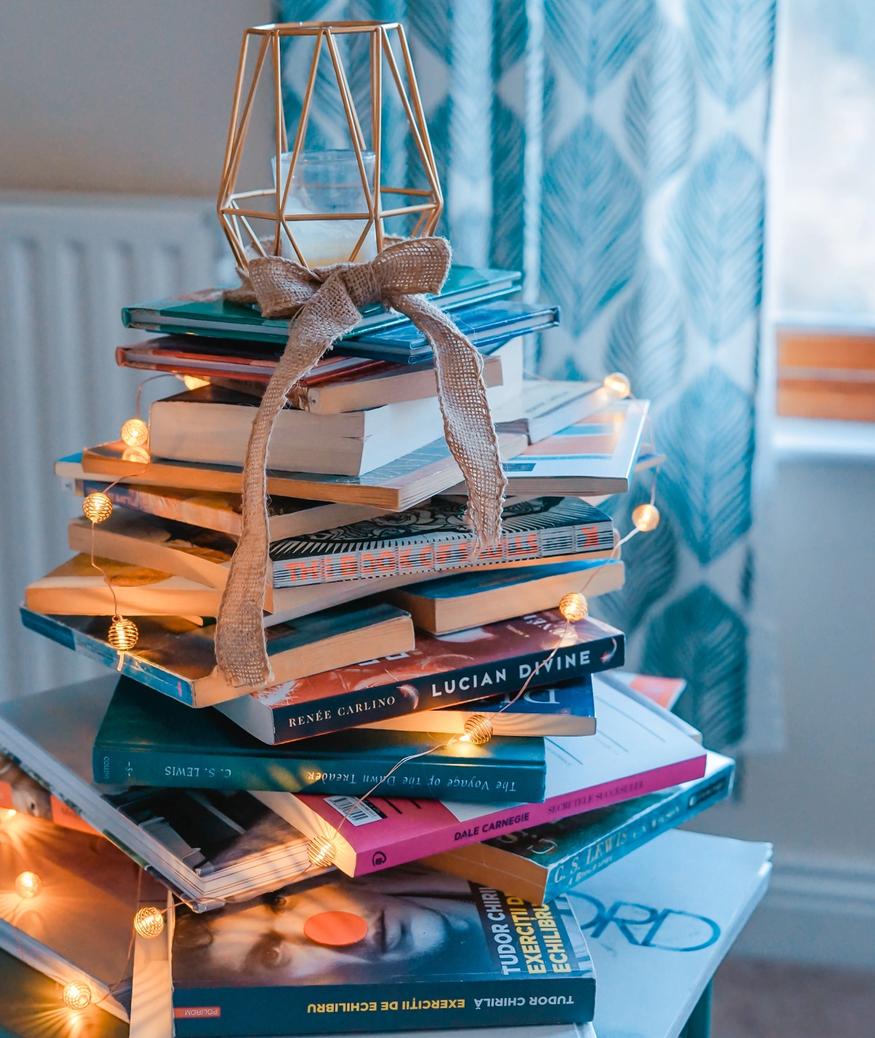
9. Achievement
It could seem silly, to consider reading everyday for ten minutes an achievement. But we’re at a point during Corona Isolation where there aren’t many things that we can consider an achievement right now. It’s hard to reach your goals when they’re aren’t goals, so we end up feeling like we’ve failed many days.
And you haven’t! You’ve made it through the day, that’s an achievement.
Easier said than done though, so here is a small, reachable goal you could add. And nothing feels more satisfying - and kind of sad- than finishing a book. Ticking it off your list. Set yourself an amount of books to read this month, or year, and then watch yourself ace it, and allowing yourself to feel proud. You did this, it was all you!
Or make it smaller, easier, how many pages do you want to read today, this week? Set yourself small goals, and feel good as you accomplish them. Be sure to write this down, on paper. This not only means you’ll be more likely to do it, but also that you get more satisfaction when ticking it off.
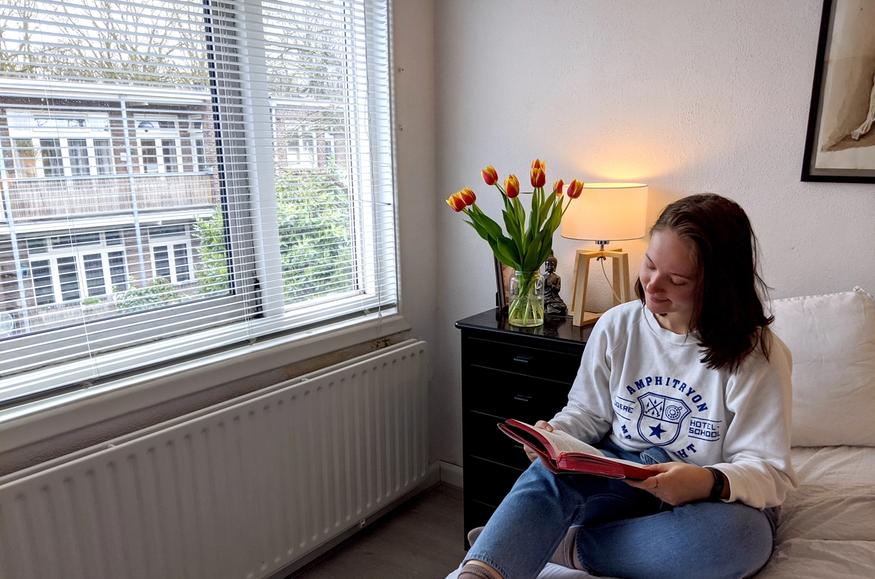
There you have it, my 9 reasons why you should read more during COVID - 19 self-isolation. Whichever reason works for you, whichever genre or author, make that change today! Start small, don’t set yourself an unreasonable goal of reading a whole book this week if you haven’t finished a book in months. Read a blog post about Non-English words for mental health, then read a short story, then an easy novel.
Don’t set yourself up for failure, you deserve more than that. Look after yourself, and stay strong!
And as a little bonus, in case you need some book inspiration, here are the books Corona Self-Isolation reads so far!
- Girl, Stop Apologizing (Rachel Hollis). A great non-fiction “self-help” book about achieving your goals, no matter what they are. Whether you aim to run a marathon, lead a company, or publish a novel, Rachel will help you believe in yourself. Plenty of anecdotes mixed with actual exercises to do. Cannot recommend enough!
- The Handmaid's Tale (Margaret Atwood). Pretty shameful as a bookworm to have read this so late, but at least I’m finally there! For those of you not in the know, a fiction dystopian novel regarding a totaliarian state and birth rights. There’s also a Hulu series but the book is better, Atwood is an incredible writer with stunning imagery that will take you far from your isolated home. Also, maybe it shows us that we could be worse off?
- Little Fires Everywhere (Celeste Ng). A fiction novel centred on two families brought together by their children, and a court case regarding a family trying to keep their adopted child. I won’t give away more, but these characters will feel as close to you as your own friends (closer as they can be in your home right now!). Such vivid questions of morality, beliefs and loyalty.
- Quiet: The Power of Introverts in a World That Can't Stop Talking (Susan Cain). A non-fiction book discussing introverts, and why extrovert traits are wrongly prioritised in society. The benefits of being an introvert; why we’re like this and why we should be proud of it! Very eye opening, and it feels like learning more about myself.
- Queenie (Candice Cathy Williams). I’m reading this for my book club, so 3 chapters per week, and it is incredible so far! It’s been discussed a lot currently by literary agents and publishers, and i can really see why. Considered to be “Bridget Jones meets Americanah”, it follows a 25-year-old Jamaican British woman living in London, as she struggles with a break up and feels like she is torn between her two cultures. It is the perfect book club read, as it is both eye opening and confronting, as well as having a bit of sex and romance to giggle about.
What are you currently reading? Check out these tips to read more during lockdown!
Please be aware that there affiliate links present in this article.
Featured posts

Fleur
Welcome to Symptoms of Living! A place where I like to relieve myself of the barrage of thoughts and ideas filling my mind. Here I'll take a look at various topics, from books to BPD, series to self-harm, there's nothing that we can't, and shouldn't, talk about.
Having struggled with mental illness since the age of 15, one of the hardest parts was how alone I felt in it. While mental illness is beginning to be discussed more openly, and featured in the media, I still think there is room for improvement. So whether it is mental illness or merely mental health, a bad day or a bad year, let's make this a place to approach it and strip it back. Everyone has their own symptoms of living, and you certainly won't be the only one with it.
Would you like to receive my top monthly articles right to your inbox?
For any comments/questions/enquiries, please get in touch at:
info@byfleurine.com
I'd love to hear from you!